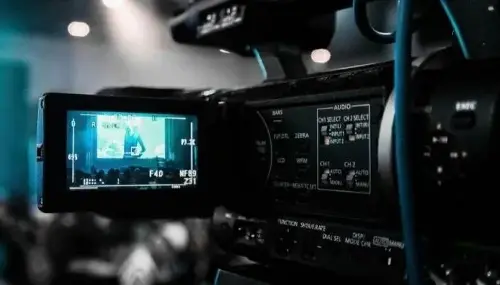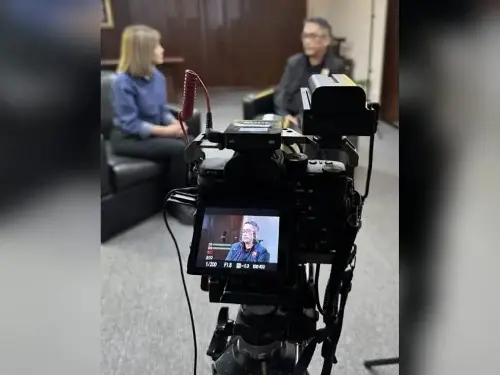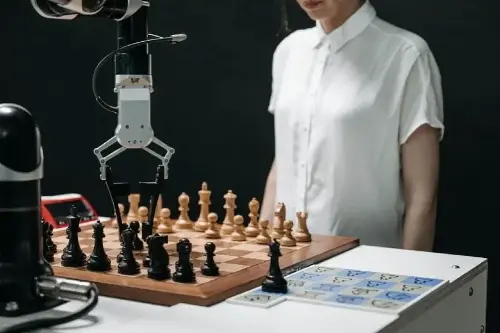
We see it everywhere and we know it’s here to stay: applied artificial intelligence (AI) is undeniably the next step in modern technology. But before we get carried away by the hype propped up by purported, sensationalized coverage on the effects of AI, let’s try to have a clearer understanding of how we can embrace it, and how it can improve our lives and communities
From our corner in the multimedia, broadcasting, and journalism sector, I have discovered the amazing capabilities of AI as a reliable tool for editing, captioning, and even in conducting research for some of the shows that my startup and I have produced over the previous year.
I've been invited to host several conferences focused on AI. My social media feed is also now overflowing with content centered on AI, reflecting the growing interest in this subject. It’s clear that Filipinos, like the rest of the world, are deeply curious about exploring AI tools—and rightly so.
AI arrives at a crucial point in history
We are approaching a pivotal moment in history – how should we really approach AI? With the media’s important role as a cornerstone of democracy --- a voice for the people and a platform for truth -- how will it fare with technology that transforms the way we create, disseminate, and consume information?

Along with the advances in AI comes both eagerness and unease. Can these two driving forces of humanity and technology coexist? I believe yes, absolutely! In fact, when used within the morals of humanity, media -- together with AI -- can create an unimaginable impact on our society, improving lives, and challenging the current status quo of public service and news production.
Traditional and digital media
Today, media comes in two formats: Traditional and Digital.
Traditional media, the ones we grew up with – radio, television, and print – have always been a credible source of information, as it strives to uphold editorial standards while striving to reach its readers and listeners across the country and especially remote areas.
However, they are often faced with limitations when it comes to the speed of delivery along with a lack of interactivity with their audience.
Digital media, on the other hand, allowed real-time reporting to be possible, and gave every one of its audience a voice – as it brought interactivity through comments at the forefront of news. But along with the accessibility they provided came the challenge of misinformation, fake news, and automated algorithms providing biases based on values alone.
All these characteristics call for a shared responsibility: both sides must stand on the same foundation of truth, accountability, fairness, and accuracy. All are non-negotiable, no matter which platform.
AI a complement, not a replacement in media
AI is here, and it’s already making ripples of change that we cannot deny.
The role of AI is not to become a replacement for human journalists and communicators, but to provide a brand-new toolbox filled with instruments that will empower our already polished skillset. It can streamline and execute otherwise painstaking processes as quick as a mouse click, unlocking exciting new horizons for storytelling and data analysis.
Internationally, we see Reuters use AI to generate financial reports all the while automating parts of its editorial process. Meanwhile, the Washington Post developed ‘Heliograf,’ an AI system that can cover events such as elections and the Olympics.
Locally, we can also see progress: GMA Network recently introduced AI-generated sportscasters, Maia and Marco, to cover the NCAA. Rappler launched an AI dialogue tool called ‘Rai’ to facilitate discussions and promote civic engagement with its audience.
These devices are made possible by AI not to replace human talent but to enhance it. Progress such as this allows us to focus on matters of creativity, context, and compassion.
Now, if there are ripples of change, then there are points of concern that should be addressed.

One of them, and one of the most common objections, in fact, is that AI will take over jobs, leaving many of us unemployed. Let’s address that: the impact of AI on jobs is projected to be felt the most in processes that need automation and augmentation. While this means that a lot of manual work may be taken over by machines, the workforce will evolve alongside this to open more roles that need people who can work with these new machines.
AI is not a threat, but rather, an opportunity to evolve our skills.
Change is always imminent, and processes are being reinvented by AI, but this does not mean jobs will be gone forever. Instead, we might just be witnessing the beginning of new opportunities within our reach.
The changes AI brings might soon need skilled individuals who can analyze AI-generated insights, fact-check and validate information, interpret data with emotional intelligence, and craft narratives that connect with audiences.
And thankfully, our ability to empathize, create, and lead cannot be replicated by machines. But although it will not replace us, AI will redefine us.

AI-enhanced media as catalysts for nation-building
Media has always been essential to public discourse, shaping policies and influencing public opinion, while technology has never been shy of breaking barriers and bridging gaps. Both of which are beneficial in building nations.
The possibilities are limitless when media and AI are harnessed to the fullness of its potential, such as reimagining public services through personalized, data-driven content, amplifying the voices of marginalized communities, and revolutionizing news delivery to make information more accessible, accurate, and engaging.
So far, we can see that media and AI together hold the potential of a promising future filled with effective and efficient public service that uplifts communities while nurturing inclusive growth that is available to all.

A future defined by purpose and humanity
Many believe that AI can help us facilitate a future filled with new opportunities for faster growth, as it provides us tools that make us more efficient, creative, and capable. I agree with this notion, that if we learn more about how to properly apply modern technology to our workflow and our objectives – such as how we strive to do it in our communications and content startup – we can foster an environment where AI becomes a useful tool for communities to cultivate skills and pushing the boundaries of what we can achieve to heights we have never even imagined.
The responsibility lies with us to wield AI wisely guided by the values of truth, accountability, and fairness for a more compassionate AND progressive future. Not only will we be able to unlock a new level of efficiency in our work, but also find more opportunities for nation-building and uplifting the lives of our communities.
----
Follow my social media accounts JingCastaneda: Instagram, Facebook, YouTube, Tiktok and Twitter. Please share your stories or suggest topics at [email protected].
